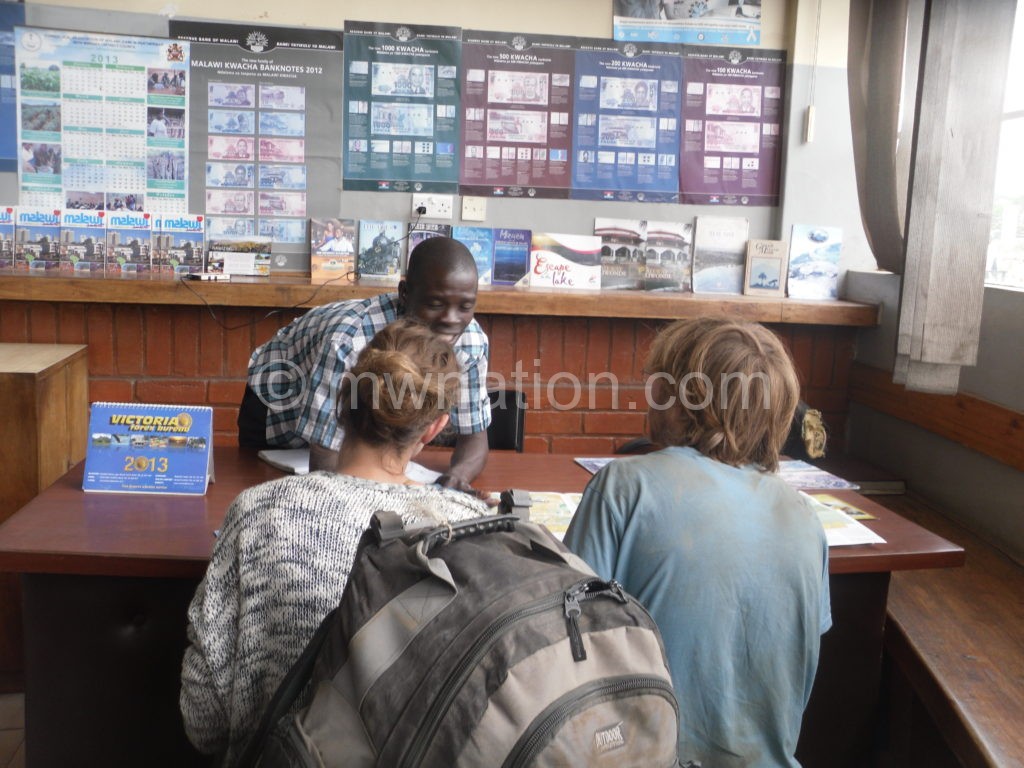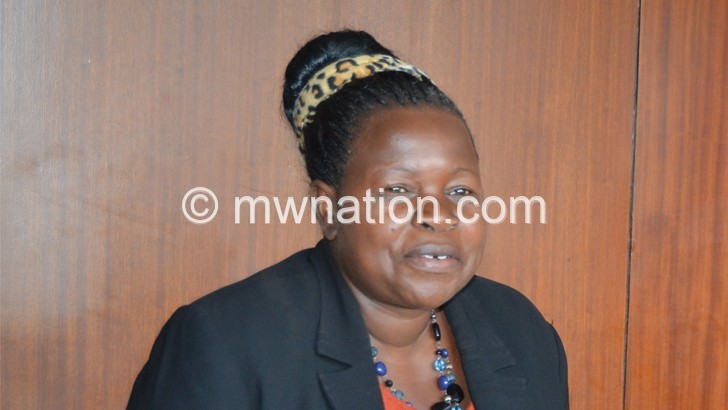ACB busts visa scam
- Zeroes in on commercial human trafficking syndicate
The Anti-Corruption Bureau (ACB) has busted a syndicate that has been capitalising on loopholes in processing travel and citizenship documents at the Immigration and Citizenship Services Department to facilitate issuance of visas to illegal migrants.

Working on a tip, ACB pursued the syndicate such that on August 15 2018 it arrested five Pakistanis and four Bangladeshis who had just landed at Chileka International Airport in Blantyre.
ACB arrested the nine Asians after their local hosts abandoned them upon being tipped that ACB officers were at the airport pursuing their transaction.
ACB senior public relations officer Egrita Ndala confirmed, in an interview on Thursday, the arrest of the nine, saying they have since been deported and declared prohibited immigrants.

According to copies of their passports, that we have seen, some of the deportees were Mohammed Shakib Uddin, 21; Tamime Muhmmod, 29; Abdul Karim, 31; and Shahab Uddin, 35, from Bangladesh. Those from Pakistan are Shahbaz Khan, 19; Muhammad Niaz, 27; and Muhammad Ramzan, 44.
Ndala said ACB was still probing the syndicate consisting some public officers in three State agencies— Immigration and Citizenship Services, Malawi Police Service (MPS) and National Intelligence Service (NIS). They are suspected of aiding foreigners to use the country as a passage to other countries in exchange for money.
While border posts are manned by Immigration officers, the role of the Police is to maintain order, NIS officers provide intelligence to police.
“The bureau has been investigating the allegation for four weeks now. The bureau is continuing with the investigation and would, therefore, not want to discuss more as that may jeopardise the investigation,” Ndala said in a written response to our questionnaire.
Deal lucrative
Our police source said the operation is lucrative business, with officers charging between $1 000 and $5 000 (around K735 000 to K4 million ) per immigrant to enter Malawi through Chileka and Kamuzu international airports, and inland borders, mostly Songwe. The officers from the three agencies connive with wealthy Asians to aid the illegal foreigners.
Besides issuing the visas, the public officers have also been coordinating transportation and accommodation for these immigrants.
According to police sources, the immigration officers do not stamp the passports of the illegal immigrants nor do they fill forms about their hosts while in the country, which makes it difficult for the country’s machinery to track down the illegal immigrants, resulting in the free-flow of the prohibited foreigners in the country.
A police source close to the set-up, said the dirty money is shared among the officers while their hosts (Asians) charge the illegal immigrants separately.
The source said Kamuzu International Airport (KIA) and Songwe Border in Karonga are the main hubs for the operation. At KIA, the illegal immigrants usually land at 2am from Nairobi, Kenya through an east African airline.
“The system is well coordinated. Upon disembarking from the plane, the officers on duty pretend to scrutinise their travel documents before their hosts swiftly take them to waiting vehicles. The same happens at the borders, particularly Songwe,” explained the source.
People from Asian nations encounter rigorous visa requirements to enter most countries, including Malawi because of insecurity, terrorism threats and fraud associated with their countries; hence their unorthodox means of obtaining visas, according to our sources.
A visa is an endorsement or an entry in a passport or other travel document that the Immigration Department issues granting permission to someone to enter the country and its fees range between $50 and $250 per individual for 30 days and 12 months.
The visa is issued in three categories—category one for citizens coming from countries and regions that require a visa in advance or prior authorisation; category two for citizens coming from countries or regions that can obtain a visa on arrival without prior authorisation while category three covers nationals whose countries and regions do not require a visa and individuals that are issued with a Gratis visa (a visa issued for free to diplomats and government officials from countries that require visa) to enter Malawi.
A majority of Asian countries, including Pakistan and Bangladesh, fall in category one, whose citizens require a visa in advance or prior authorisation.
Once in Malawi, said another source, the illegal foreigners either stay with their hosts for an agreed period or use the country as a conduit to Mozambique or South Africa.
“Those who decide to stay in Malawi are further charged per day as their hosts process their work and business permits and once the permits are ready, they assimilate into the Malawian society,” she said.
Last year, alone, statistics show that the Immigration Department registered about 4 000 foreigners who came from China, Pakistan, Bangladesh and India as visitors but only about 400 exited the country.
The same underhand dealings are also happening with Rwandans, Somalis, Burundians and Ethiopians, among others, who usually use Songwe Border and in extreme cases, enter the country through Lake Malawi.
Immigration confirms ACB probe
But while expressing ignorance on the existence of the syndicate, spokesperson for the Immigration and Citizenship Services Joseph Chauwa confirmed the ACB probe, as well as the arrests of the Pakistanis and Bangladeshis.
“I heard about the Asians who were intercepted by ACB at Chileka Airport. I was also told that ACB investigators came to our office for some inquiries and were also provided with the information they requested as part of their investigation,” he said, in an interview on Tuesday.
However, he said he was not briefed whether the investigation by the graft-busting body was targeting Immigration officers on suspicion that they were aiding foreigners to enter the country.
“But that [probe] is normal because these documents are prone to manipulation or forgery so any investigating body that gets information on the same can conduct their own investigations to unearth what happened,” said Chauwa.
In April 2015, another syndicate of Immigration, police and Lilongwe Handling Company officers at KIA was also exposed following a spate of botched deals.
The deal went sour after three Bangladeshi migrants were intercepted on arrival, after a female Immigration officer got suspicious with her colleagues who were aiding the foreigners to enter the country without visas.
A representative of the Asian community in Malawi, Altaf Mohammed, said he had heard about the allegations that some Asians were engaged in human trafficking.
He said: “You know there is a lot of filth happening in the most sophisticated way in this country so I cannot confirm anything because nobody has ever come to me with information on the matter other than just hearing about it from the grape vine.”
‘Unpatriotic officers should be flushed out’
Commenting on the issue, social and governance commentator Undule Mwakasungula said the syndicate was a result of some unpatriotic officers within the system who need to be flushed out.
“Trafficking humans is against our laws and anyone involved must be answerable. Trafficking humans is modern slavery that cannot be condoned,” he said. Another social and governance commentator Martin Chiphwanya observed that corruption was so entrenched in the country and needs a radical approach to curb it.
It is quite evident that as a country, we have not entrenched an anti-corruption culture and we haven’t decentralised anti-corruption strategies at institutional level.
“The ACB alone cannot effectively fight the vice because they have no physical presence in the institutions. There is need to decentralise the anti-corruption systems at institutional level. Anti-corruption strategies at Immigration Department will require a different customised approach,” said Chiphwanya, former national coordinator for Catholic Commission for Justice and Peace (CCJP).
In December 2016, some 250 blank passport books went missing at the Immigration and Citizenship Services Department and up to now the nation is yet to be told the conclusion of the case.
In October 2014, a Weekend Nation undercover investigation established that ordinary Malawians applying for passports were struggling to get the documents even after expiry of the 21 days, unless they paid bribes to officers.





